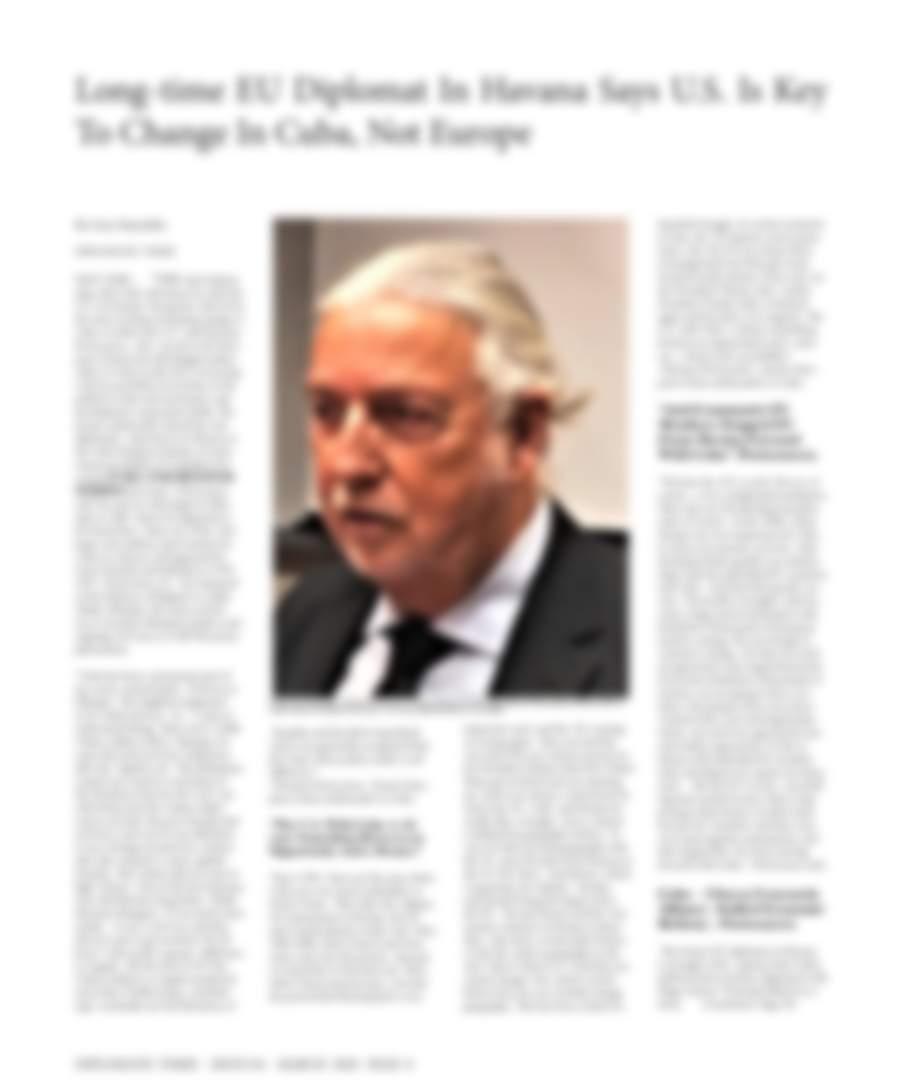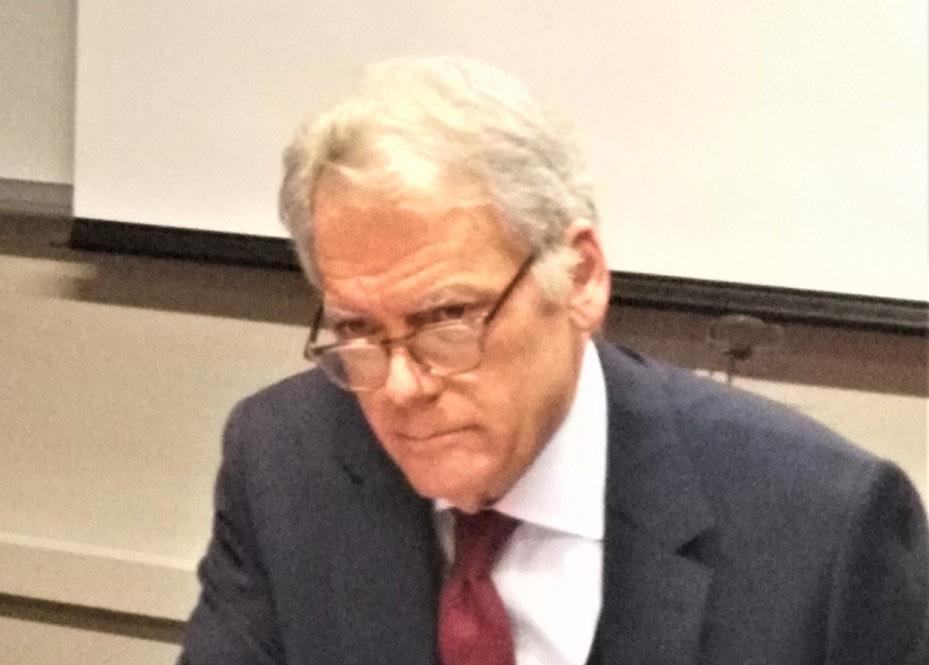
4 minute read
Long-time EU Diplomat In Havana Says U.S. Is Key To Change In Cuba, Not Europe
By Gary Raynaldo
DIPLOMATIC TIMES
Advertisement
NEW YORK – “THE vital relationship with Cuba will always be with the U.S. not Europe. Europeans will not be the ones to bring everlasting change to Cuba. It will be the U.S.” said Herman Portocarero, who served as the European Union’s first full-fledged ambassador to Cuba in July 2012 overseeing a diverse portfolio of activities in the political, trade and investment, and development cooperation fields. The former ambassador shared his rich diplomatic experiences in Havana at the Cuba Program Institute of Latin American Studies of Columbia University CUBA AND BEYOND SERIES last week. Portocarero said his role in Cuba began in Ethiopia in 1980 where he happened to be based there when one of the first large scale military interventions by Cuba on African soil happened between Somalia and Ethiopia in 1978- 1979. Portocarero, 67, was stationed at the Embassy of Belgium in Addis Ababa, Ethiopia. His main activity was to monitor Ethiopian politics and ongoing civil wars as Cold War proxy phenomena.
“Cuba has been a passionate part of my career, and privately. I lived in in Ethiopia. My neighbors happened to be Cuban doctors. So , I came to understand things. There were 15,000 Cuban soldiers still in Ethiopia, because they had not been withdrawn after the Ogaden war. The Ethiopians wanted very much to send them to the Northern front for the Civil war with Eritrea but the Cubans didn’t want to do that. Because Somalia had not been a just war by any definition it was a foreign invasion by a nationalist who wanted to create a global Somalia. But Cubans did not want to fight Eritrea. First of all, the Eritreans were old Marxists long before (Haile Mariam) Mengistu. It was much more murky . It was a civil war, and they did not want to get involved. We all know Cuba made a greater difference in Angola, (By the end of 1975 the Cuban military in Angola numbered more than 25,000 troops, contributing) eventually (to) the liberation of
Credit: Gary Raynaldo / Herman Portocarero, former European Union ambassador to Cuba, speaks on future of the socialist nation at Columbia University, New York political forum Nov. 12, 2019.

Namibia and the fall of Apartheid. And it was generally recognized that the Cuba-Africa policy made a real difference.” -Herman Portocarero, former European Union ambassador to Cuba.
“Since 1959, there are the years when Cuba was very much enthralled to Soviet Union. Then after the collapse of Communism in Europe, the EU and Canada played a major role. Then 1999-2000, when Chavez and Venezuela came into the picture, that put us somewhat on the back seat. Then when Chavez passed away, you had the period that Brasil played a very important part, and the EU coming on strong again. Then you had the very short but very intense period under President Obama when the United States got involved and was opening up. And it was always a interaction between the US, Cuba and Europe basically, like a triangle. Every country is defined by geographic history. In case of Cuba you had geography with the US some 90 miles from Havana to the US Key West. And history, which is spanning the Atlantic. Europe, and Europe being the largest sense, the EU, but also Russia and the communist countries in Europe in those days, they had a certain pull of history, but the push is geography in the end. Cuba is where it is. And that you cannot change. You cannot rewrite history but you can certainly change geography. This has been a kind of a lopsided triangle. At certain moments in time, the EU played a more prominent role, the US was always there in background, but then gets more involved under Jimmy Carter and under President Obama, then (under President Trump) takes a backseat again and becomes very negative. The U.S. with Cuba is always something between an opportunity and a menace, a threat and a possibility.” -Herman Portocarero, former European Union ambassador to Cuba.
“Anti-Communist EU Members Stopped EU From Moving Forward With Cuba” -Portocarero.
“We have the EU as such, We are, of course, a very complicated institution. There also are 28 individual member states of course. In the 1990’s, when Europe was very important for Cuba in terms of economic survival. what developed fairly quickly was relationships with the individual EU countries and Cuba. And that had specific reasons. Practically overnight, Cuba became a huge tourist destination with hundreds of thousands of European tourists coming. We saw foreign investment coming. For that you needed agreements and a legal framework. If you have hundreds of thousands of tourists, you are going to have accidents, You going to have visa issues, counsel issues, you need legal preparation. you need visa agreements you need airline agreements. So the relations with individual EU member states developed very quick over these years But the EU as such, was holding back, partly because what is happening is that former socialist states became EU members and they were very much against communism, and that stopped the EU from moving forward with Cuba.” Portocarero said.
Cuba – Chavez-Venezuela Alliance Stalled Economic Reform : Portocarero
The former EU diplomat in Havana is strongly of the opinion that Cuba’s political and economic alignment with Hugo Chavez’ Venezula halted its reform. (Continued Page 10)


